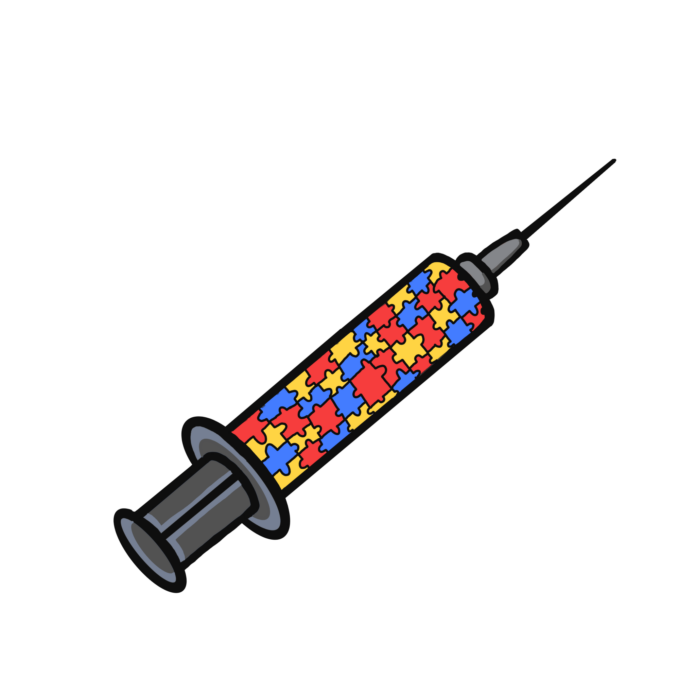
I typically find the whole idea of “awareness months” to be a bit silly. However, since April is Autism Awareness Month– the only one of these that affects me personally– it’s a good excuse to talk about something that’s both fascinated and troubled me for a while: a prospective cure for Autism.
Autism is a behavioral disorder, but with a biological basis in the nervous system, and a common comorbidity of various other medical issues. We don’t know everything about it, but we know it’s a genetic disability. So there is a physical basis, meaning it can hypothetically be alleviated. But as it stands right now, most known treatments are ineffective, and there is no known remedy. And, much like cancer, there wouldn’t be one single cure, as Autism exists on a spectrum, with wild variance between individual cases.
So “the cure” exists only in the abstract, as a hypothetical that would manifest in the distant future, something that will likely never come to pass.
Despite this, it’s still a controversial subject, with a broad consensus against it. Autism advocates push for more acceptance, accommodations, and resources for autistic individuals to thrive, rather than wasting energy trying to “fix” them. Of course, this is good and worthwhile advocacy.
However, keeping this in mind, it is still self-evidently necessary to discover a cure for autism.
I don’t fault anyone for disagreeing. One of the many things hurting this case is the fact that, for lack of a better phrase, autism has been turned into a cute internet thing. It’s been meme-ified, another joke to post about, and an identity to add to your bio. And this isn’t a problem at all, I’m glad it’s become so normalized, and I treat it just as casually a lot of the time. But I think we’re all forgetting the fact that autism is a debilitating neuropsychological disorder.
Being on the spectrum greatly inhibits one’s Executive Functions. These are, basically, the cognitive processes that allow people to manage their behavior. These Executive Functions include but are not limited to self-monitoring, time management, organization, impulse control, emotional control, and working memory. Imagine what your life would be like if you struggled with most– no, all of these things. Obviously, this isn’t the only issue.
I don’t think I’ll ever have a reasonable relationship with food. It’s embarrassing to have to awkwardly turn down certain experiences because you are sincerely afraid of the sensory experience it’ll entail, to have this entire area of life effectively shut off from you.
In middle school, I started developing facial tics. These are involuntary spasms that come and go, and I know how to mitigate them, but I don’t think I’ll ever have full control over my body.
Autism comes with an inherent sense of isolation, and no matter what my social context is, or what communities I’m a part of, I think I’ll always feel this way.
I’ve made a lot of progress with the interpersonal and communicative side of this. I was never the stereotype of the emotionless robot who didn’t understand any social cue, but for a while, I never knew what to say or do in any situation, ever. There are still so many things that other people experience that are so foreign to me, to the point where I don’t understand them. And I’ve gotten myself into so many awkward and bizarre situations because I was not fully equipped to be a social being.
All of this is to say that while I am proudly and openly autistic, if there was a pill, a vaccine, or a surgery to get rid of it, I would do it in a heartbeat. I don’t see the point in pretending otherwise.
I’m far from an authority on this subject. I was diagnosed roughly two years ago, with Autism Spectrum Disorder Level One, which would be better understood as its former name, Asperger’s syndrome. It is a disability but in the same sense as cataracts and IBS. I would never identify as a truly disabled person. And typically, I wouldn’t want to speak on behalf of that community.
But in this case, I have to, because there are people with autism who can not speak. There are others who can barely walk, and whose sensory sensitivity is so severe that simply being out in the world can harm them. Some autistic people’s outbursts are so severe that they are a genuine danger to themselves and others. Autism is not an intellectual disability on its own but drastically lowered IQ is a common comorbidity in more severe cases. These are people who, through no fault of their own, are simply not able to live functional, fulfilling lives. Autism can have its upsides, but it is the source of a tremendous amount of human suffering. I reject the idea that we should accept this, that we shouldn’t try to solve this problem– or that it isn’t a problem at all.
The word “autism” comes from the Greek root “autos” – meaning “of the self” – and the suffix “ismos” – meaning “state of being.” This is fitting entomology, as we are, essentially, trapped within our own minds, lost in ourselves. If you were in this position, would you not want to break free?
For comments/questions about this story DM us on Instagram @thewhitatrowan or email thewhit.opinion@gmail.com





